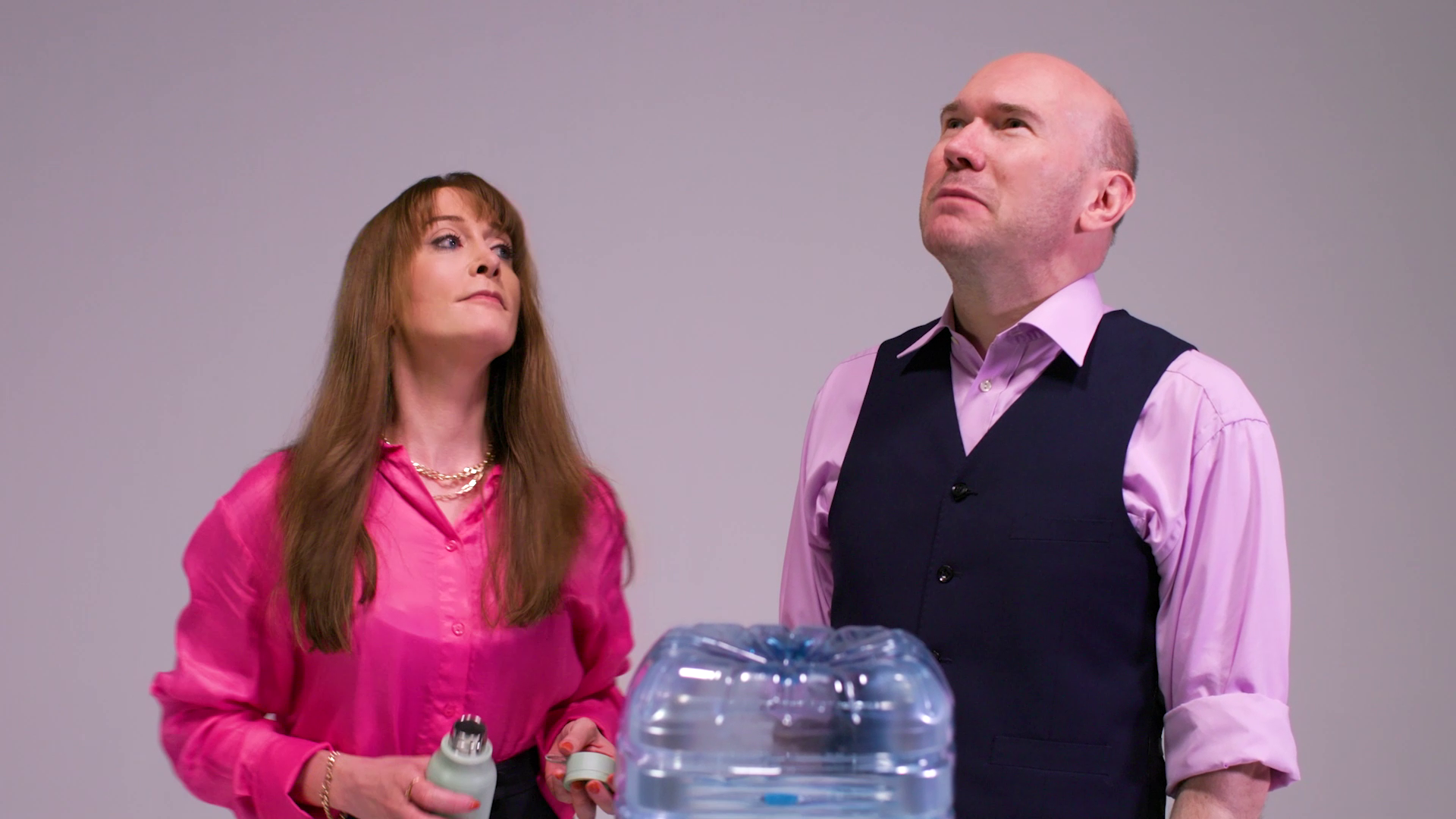If you’re familiar with Video Arts then you’ll know that workplace learning is our passion – specifically, down right hilarious video learning that inspires positive behavioural change. We live for it. But today, we thought: why not switch it up a bit?
As much as formal learning plays a major role in developing employees, behavioural change is also about, well, your personal behaviours. And that’s what this blog is about. Particularly for managers, who form the bridge between employees and workplace learning, personal behaviours have a huge impact on the success of any development programme. As the clever clogs over at the CIPD stated in a report:
“Manager behaviour not only impacts on employee health and well-being, but also on employee engagement, as demonstrated in both academic and practitioner research.”1
So, with that said, let’s crack on with the four personal behaviours you can be practising to support workplace learning.
1) Communicate, communicate, communicate
It goes without saying how important communication is in the workplace. In fact, we can go so far as to say that the majority of businesses know full well the problems hybrid working presents with regards to communication, and we mean more than just explaining to Jill that she’s on mute…again. Even putting up with quirks in the office are nothing compared to the loneliness that bogged down 49% of the housebound workforce during the pandemic.2
And yet, many organisations are still struggling to communicate with employees in a hybrid context. For managers, looking first at how they themselves communicate with others is a useful step to take.
Certain things you should consider include:
- Encouraging two-way conversations: this allows employees to share valuable insights about their needs and preferences.
- This also gives you data on what communication tactics you should use i.e., face-to-face catch ups, check-in preferences and a meeting itinerary that accommodates all work schedules.
- Letting employees vote on a variety of proposed topics that they want to discuss in the next learning module or meeting.
The role of communication in creating sustainable engagement in the workplace cannot be understated. ThinkTalent found that organisations with effective change and communication programmes are 3.5 times more likely to outperform their peers.3 This goes to show: dedicating time and attention to communication as a factor in learning will support your professional development.
2) Look at mistakes as growth opportunities
Nobody loves mistakes, but that doesn’t mean we should see them as an objectively bad thing. Instead, we should look at them as opportunities for growth.
A positive attitude in the face of a negative outcome supercharges employee morale and improves trust. When we react in a frustrated manner though, employees may feel less inclined to learn or innovate in fear that they’ll cause another bad reaction. So, what does this mean for managers?
Should you let employees blindly walk into a mistake? Not at all. Of course, we’d rather avoid them, but there’s no getting away from the fact that mistakes can and will happen. Managers need to walk a tightrope to become a leader rather than a disciplinarian, who can reassure employees that mistakes are a learning curve rather than something to be feared. How we view mistakes improves our development both personally and professionally, and encouraging constructive workplace behaviours will only result in more high-quality work down the line.
Suggested video: Managers need to act more like coaches. Want to know how to balance that act? We’ve got a belting webinar here.
3) Be an empowerment freak
Like Lucy from Reception at last year’s Christmas party, it’s time to get your freak on. What we mean by this is, rather than acting like mini-tyrants with a control complex, managers should behave in a way that fosters a culture of trust amongst employees. This behaviour may sound similar to our previous point, but here the focus is on the stage prior to mistakes happening, rather than reacting to it.
For managers that struggle with a tendency to be somewhat overbearing, the “new normal” is a huge problem. Hybrid working demands some degree of worker autonomy, but this can clash with the age-old love for micromanagement. Our friends at Deloitte have pointed out that taking on a challenge, no matter the scale, ‘requires some degree of autonomy and flexibility.’4 In this context, it’s important to recognise micromanagement as a side effect of a rigid, command-and-control environment that is actually preventing the hybrid workplace from being as productive as it can be.
We know that micromanaging comes from a good place, where you simply want to ensure everyone is performing at their best. A simple but powerful remedy for this is to just let go — like your dad does when he breaks out the Bonnie Tyler after a few pints at karaoke. Employees can still operate at their best potential if they’re given the room to grow. Not only that, but letting employees try stuff out will improve managers’ personal quality of life, as there is less of a feeling of being required to micromanage. In fact, autonomy creates a space for passion to flourish. Deloitte found in the same report that:
- 72% of employees who had sufficient autonomy to achieve their goals were passionate.
- 56% of passionate employees report having discovered said passion through their work.
People who care about what they do are actively more engaged when they’re doing it.
Suggested reading: You can get up to speed with soft skills (or human skills) in this blog piece here.
Forbes Magazine conducted a survey that revealed humility in CEOs led to higher-performing leadership teams and increased collaboration.5 A good rule of thumb here is to remember that regardless of how high your rank, there’s always something to learn, and no matter how low you may rank you might have something to teach. We definitely wouldn’t have said this back at school, but lifelong learning is key to personal growth. Just because you’ve made it to the top doesn’t mean you don’t have things to learn from Martin, the new intern. After all, personal development is a lifelong process.
Bear that in mind with other employees: let them collaborate and share in a culture that gives equal opportunity for them to do so. That way, your workplace becomes a forum of ideas, better strategies and an environment that fosters longer lasting learning.
Suggested video: why not check out our quick Everyone’s a teacher and everyone’s a learner video?
Video Arts supports you and your learners
There we have it. Four personal behaviours that support learning in the workplace. Now we’re going to have to tell you about our extensive library of humorous content — why wouldn’t we? Considering we’ve just served you some food for thought, it’s only right we offer you the pudding.
You could have the best material in the world but without a workplace culture that promotes better engagement, learning won’t last long. This goes both ways: as well as workplace learning for employees, there should be specialist courses available in the development framework for L&D practitioners, to help you achieve your personal development goals. Spoiler alert: we’ve got the perfect collection for that. You can check out our “Management” collection here.
Humour and storytelling are so powerful when it comes to longer-lasting learning. And, with the right behaviour that cultivates a learning environment — backed up by our self-directed, video-based learning pathways — well, a more productive and positive workplace will be the cherry on top.
1 Developing managers to manage sustainable employee engagement, health and well-being | CIPD
2 Anxiety, stress and loneliness: COVID’s toll on the lives of workers | Ipsos
3 Why internal communication is the key driver for employee engagement | ThinkTalent
4 If you love them set them free | Deloitte
5 Why Humble Leaders Make The Best Leaders | Forbes Magazine





